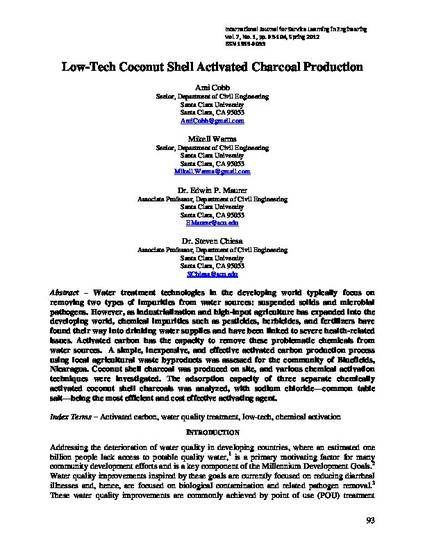
Water treatment technologies in the developing world typically focus on removing two types of impurities from water sources: suspended solids and microbial pathogens. However, as industrialization and high-input agriculture has expanded into the developing world, chemical impurities such as pesticides, herbicides, and fertilizers have found their way into drinking water supplies and have been linked to severe health-related issues. Activated carbon has the capacity to remove these problematic chemicals from water sources. A simple, inexpensive, and effective activated carbon production process using local agricultural waste byproducts was assessed for the community of Bluefields, Nicaragua. Coconut shell charcoal was produced on site, and various chemical activation techniques were investigated. The adsorption capacity of three separate chemically activated coconut shell charcoals was analyzed, with sodium chloride—common table salt—being the most efficient and cost effective activating agent.
